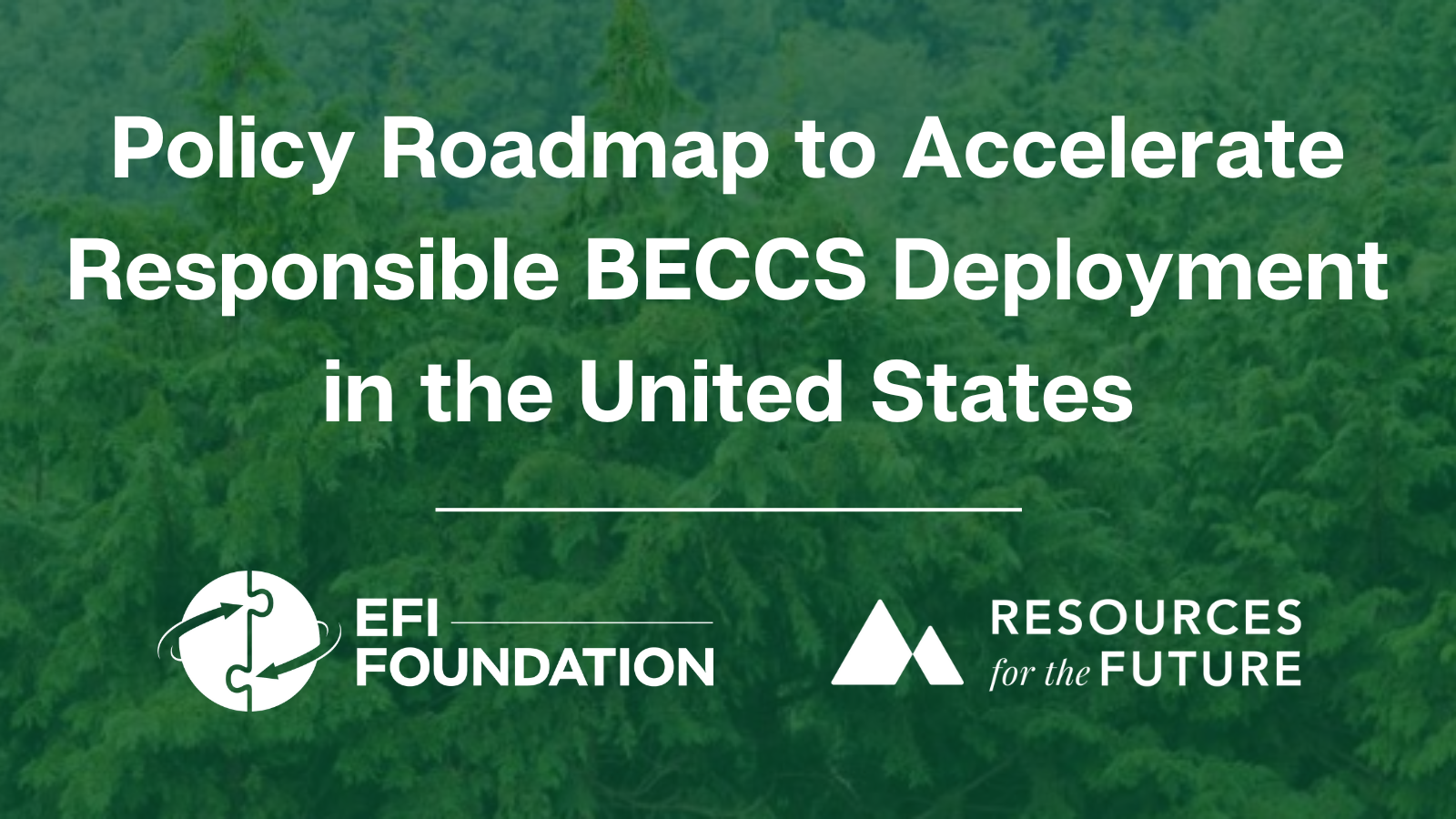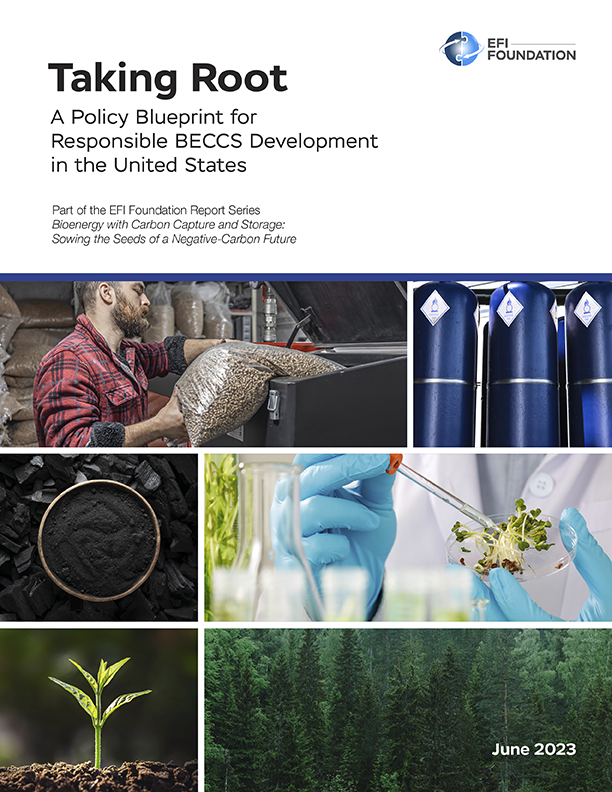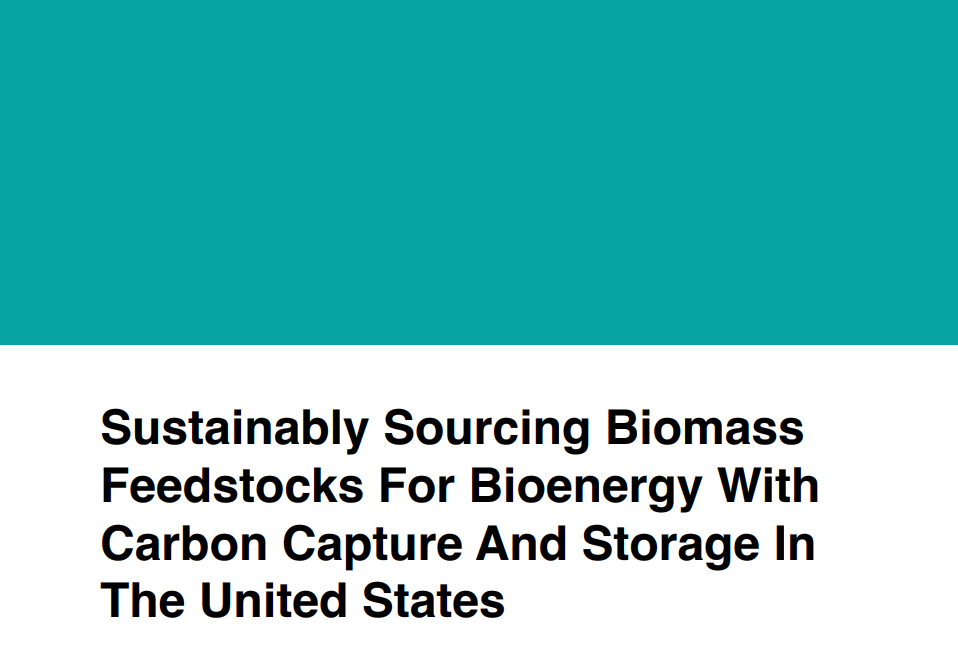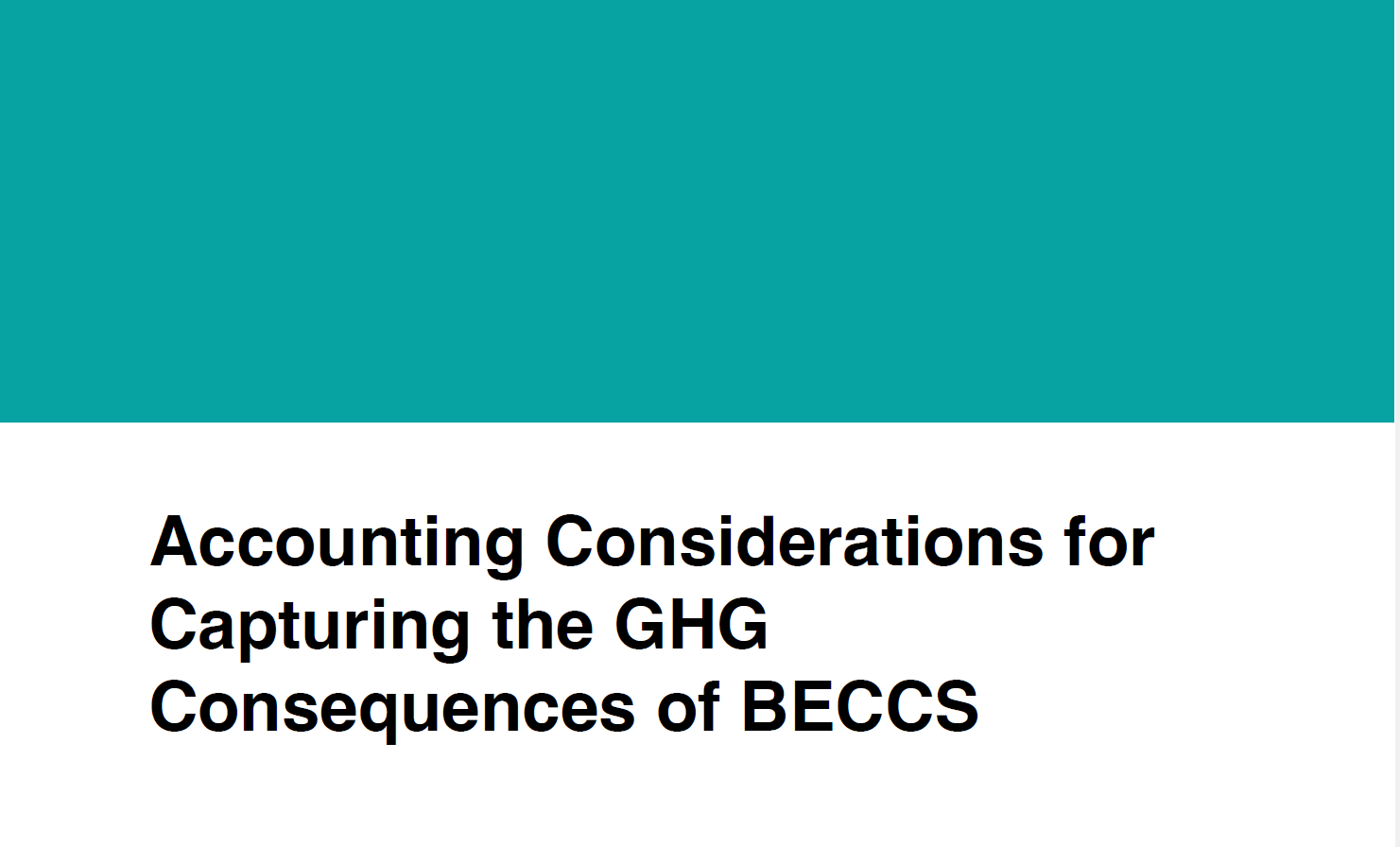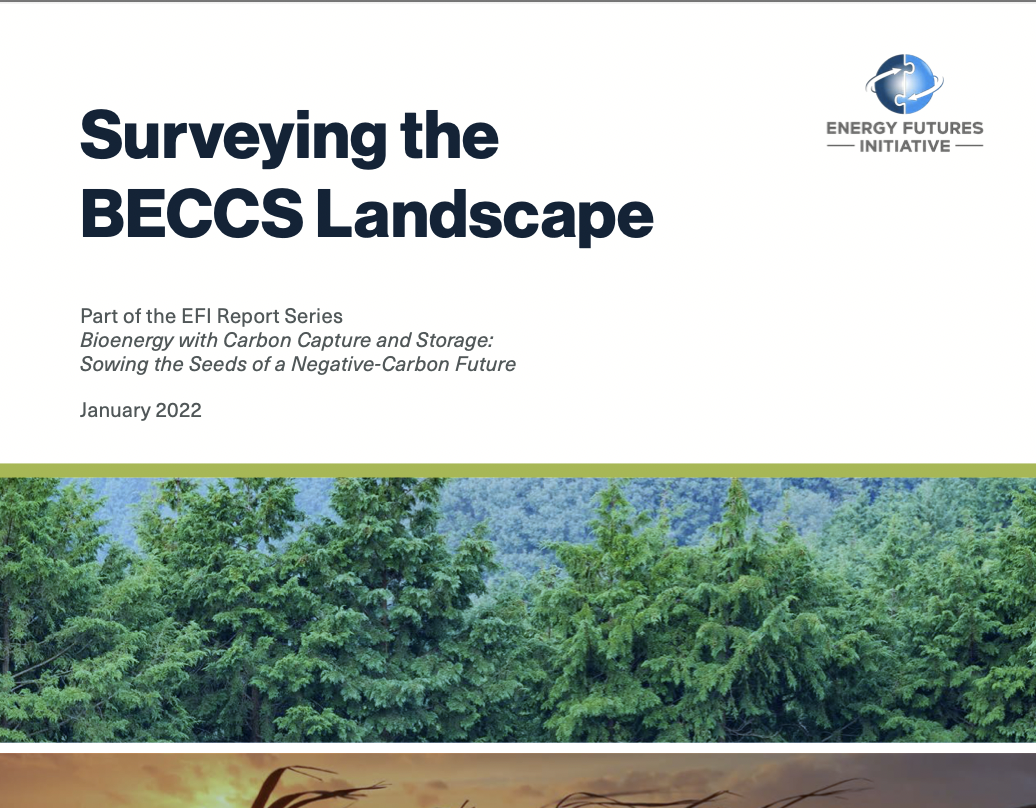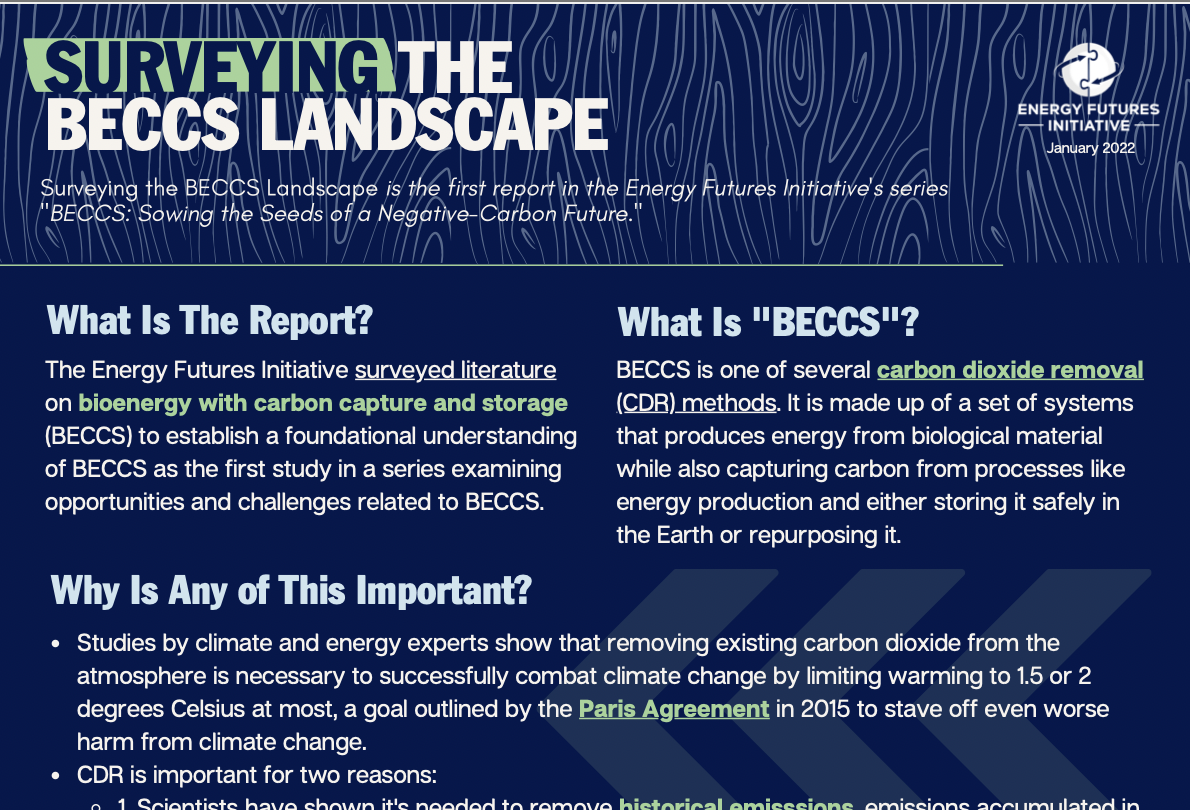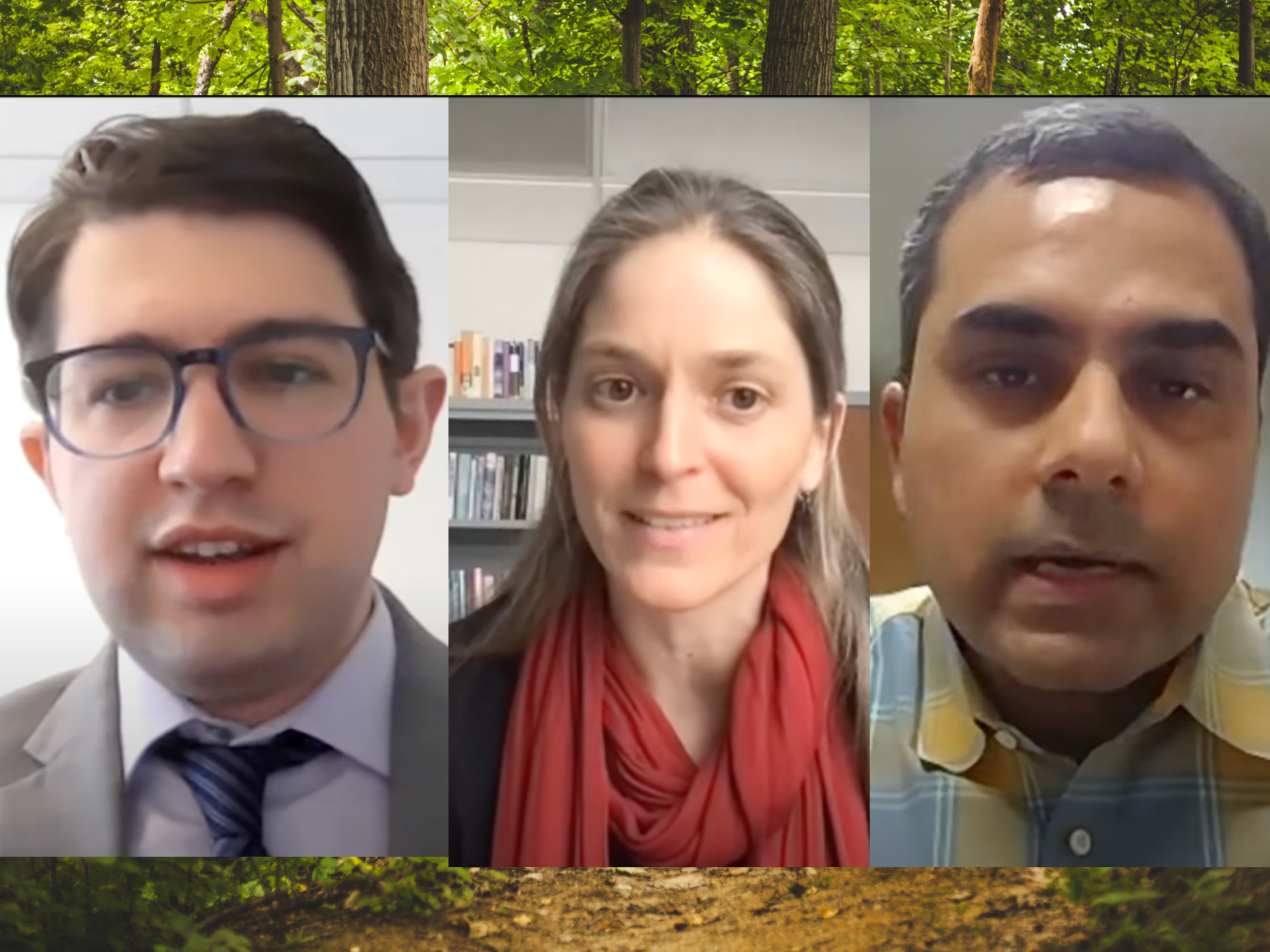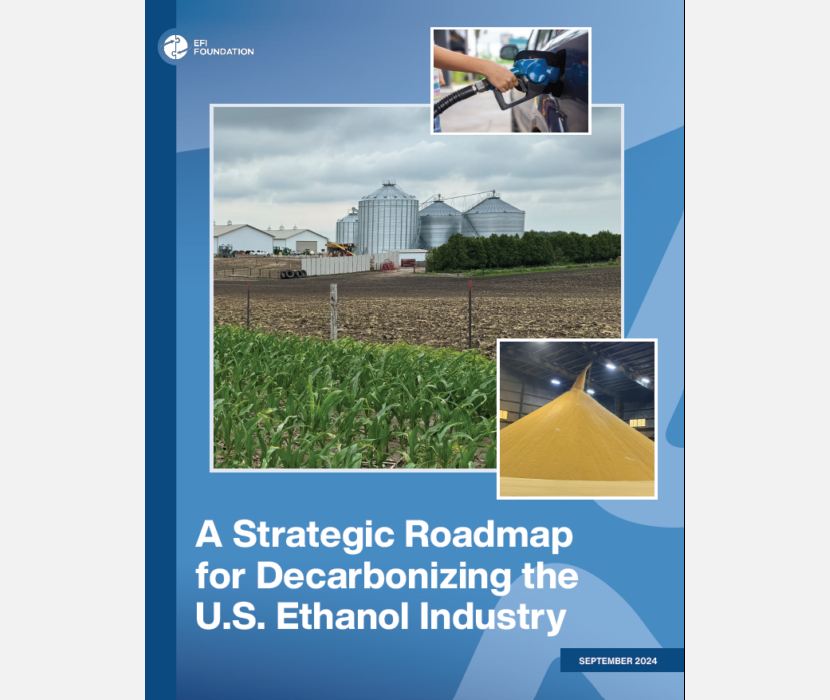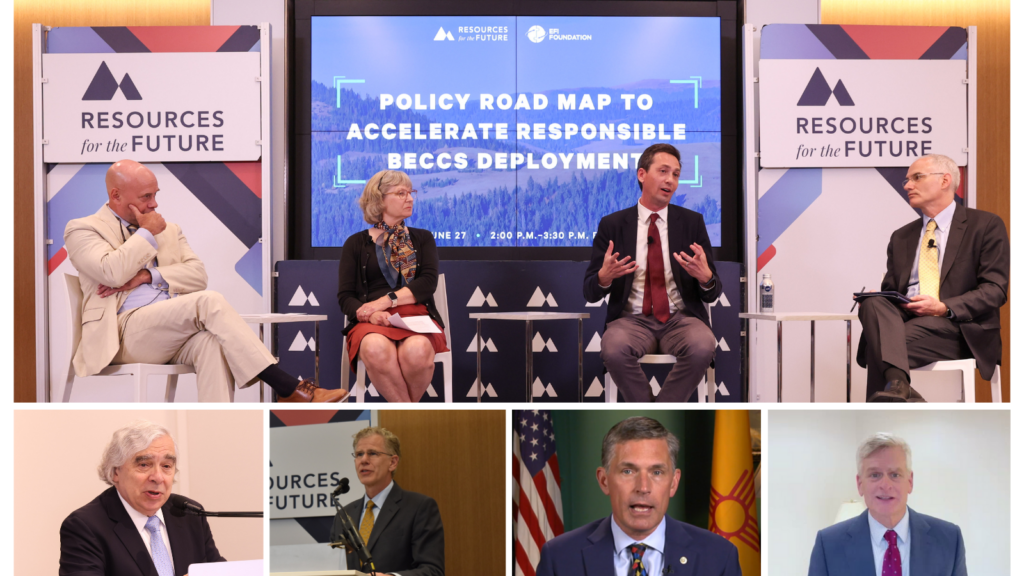
On June 27, 2023, the EFI Foundation released a summary report that details a holistic federal policy blueprint to accelerate responsible deployment of bioenergy with carbon capture and storage (BECCS) in the United States. The report is titled “Taking Root: A Policy Blueprint for Responsible BECCS Development in the United States,” and in it, the EFI Foundation gives policy recommendations and synthesizes findings from a multi-year study on BECCS.
The Intergovernmental Panel on Climate Change estimates that the world will need six billion tons of carbon dioxide removal per year by midcentury to avoid the worst effects of climate change. BECCS has the potential to be a carbon removal technology, and its large-scale deployment could help us meet global carbon dioxide removal goals. BECCS could fill important needs for carbon removal and clean energy production, provide an economic impetus in rural communities, and further establish the United States as a global leader in bioenergy technologies.
The EFI Foundation released the report at an event on June 27, 2023, co-hosted by Resources for the Future (RFF). The event featured remarks from senators, EFI Foundation staff, and experts from other nonprofits and think tanks, industry leaders, and academics.
EFI Foundation President and CEO Ernest Moniz opened the event with RFF President and CEO Richard Newell. Moniz noted that the six billion tons of carbon dioxide removal per year that we need by midcentury is larger than the total carbon dioxide emissions of the United States today. He emphasized that we need more kinds of bioenergy and a robust portfolio of low-carbon energy options to meet temperature targets.
“Bioenergy contributions to the clean energy transition will certainly go beyond ethanol and involve heat, involve power, involve co-benefits—like forest management,” Moniz said. “And the question is, really, how do we extend that entire portfolio as significant contributions to meeting our climate objectives?”
RFF President and CEO Richard Newell highlighted the need for BECCS to be in our menu of low-carbon energy options and discussed current momentum.
“As the only net-negative technology that can provide energy and power, BECCS has seen growing attention in recent years from policymakers and companies looking to meet net-zero emission targets,” Newell said.
Regional Co-Benefits
Regional bioenergy markets and the regional co-benefits of BECCS vary across the United States. In video remarks prepared for the event, Senator Martin Heinrich (Democrat-New Mexico) and Senator Bill Cassidy (Republican-Louisiana) focused on the co-benefits most pertinent to their regions.
Heinrich highlighted how BECCS could utilize the biomass that would otherwise fuel wildfires, which have grown more frequent and intense in states west of the Rocky Mountains.
“BECCS systems could help us reduce the intensity of many of our wildfires,” Heinrich said. “They can help us reduce the massive impacts that fires have on our communities, our carbon emissions, and of course, our air quality.”
In the context of Louisiana’s existing wood pellet industry, Cassidy noted BECCS as a way to stimulate economic growth.
“In North Louisiana, we’ve long turned wood into wood pellets for use in bioenergy plants. Now, we have multiple companies exploring developing new BECCS power plants in the region,” Cassidy said. “This will create more jobs, encourage more development in the region, and provide an avenue for Louisiana to remain a global leader in energy production and manufacturing.”
Wildfire Management
EFI Foundation Senior Research Associate Sam Savitz said because there is significant overlap between federally owned forest lands and the areas that the Federal Emergency Management Agency (FEMA) says are most at risk for wildfires, federal policies could go a long way toward increasing BECCS deployment to support wildfire management. Current federal policies (such as the Renewable Fuel Standard) are not conducive to using biomass cleared from federal forests for energy. The 2023 Farm Bill, legislation that is renewed every five years and funds several programs in the U.S. Department of Agriculture, presents opportunities to grow sustainable biomass supplies for BECCS, including from wildfire-prone areas.
EFI Foundation Executive Vice President Joseph Hezir explained that more research is needed for BECCS-based wildfire management. The Farm Bill is a potential opportunity to provide funding for pilot projects.
“We have a number of studies out there, but we really need some ground truth data,” Hezir said. “We’re hoping to get some action on that, and some of our recommendations on the Farm Bill are targeted in that direction.”
Federal policies should also address the lack of an adequate supply of sustainable biomass. As long as this issue persists, scientific and technological advances alone will not be enough to ensure large-scale BECCS deployment.
“The issue is the economics; it’s not technological,” emphasized Virginia Dale, research professor at University of Tennessee, Knoxville’s Department of Ecology and Evolutionary Biology.
Greenhouse Gas Accounting
Accounting for greenhouse gas emissions is a challenge for BECCS deployment. Measurements of carbon emissions must be comprehensive, consistent, credible, transparent, and science-based, but the right approach should make this difficult process more feasible and less daunting.
“The question of how you do carbon accounting around BECCS is a complex question,” said Roger Ballentine, president of Green Strategies, Inc. “But in some ways, I think that some approaches make it more complex than it needs to be.”
All of the speakers recognized the need to be thorough but reiterated the need to adopt a method that everyone could agree upon in the near term to meet climate goals.
“It’s time now to pick a path and go with it,” said Sasha Mackler, executive director of the Energy Program at the Bipartisan Policy Center.
Community Engagement
The panelists agreed that responsible BECCS deployment must involve community engagement and address environmental justice concerns. They said there is a need for more community engagement in the earliest stages of projects, rather than only at the end stages.
EFI Foundation’s Senior Research Associate Sam Savitz emphasized the specific need to prioritize rural communities located near biomass sources and place projects in communities that have experienced job loss from the shrinking pulp, paper, and wood industries.
“It’s important to be engaged in these communities,” Savitz said. “[We must] make sure that BECCS is included in communities that want it and where it can have the greatest benefit.”
– Georgia Lyon, Communications Associate
Supplemental Material
Related Content
(Share this post with others.)


